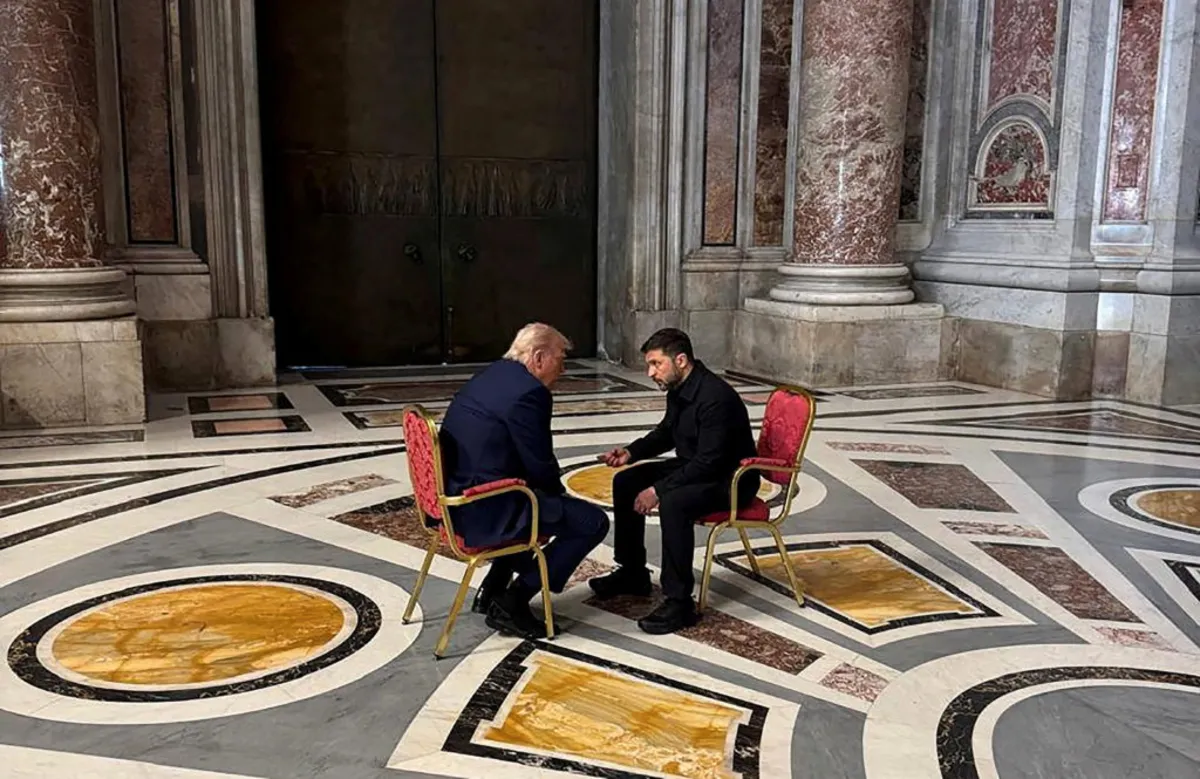
In a recent statement made during his return to the United States, President Donald Trump expressed skepticism regarding Vladimir Putin's willingness to end the ongoing war in Ukraine. This remark came just a day after he suggested that Ukraine and Russia were “very close to a deal.” Trump’s latest comments are indicative of a growing concern about the feasibility of achieving a peace agreement soon.
While flying back from the Vatican after attending Pope Francis’ funeral, Trump took to social media to voice his doubts about Putin's intentions. He stated, “There was no reason for Putin to be shooting missiles into civilian areas, cities and towns, over the last few days.” This statement underscores the ongoing violence and instability in Ukraine, raising questions about the prospect of a peaceful resolution.
In addition to his doubts about peace, Trump hinted at the possibility of imposing further sanctions against Russia. He remarked, “Maybe he doesn’t want to stop the war; he’s just tapping me along, and has to be dealt with differently, through ‘Banking’ or ‘Secondary Sanctions?’ Too many people are dying!!!” This statement indicates that Trump may be reconsidering his approach to dealing with Putin, especially in light of the ongoing conflict that has claimed countless lives.
Trump's recent comments sharply contrast his previous assessment that Ukraine and Russia were nearing a deal, a sentiment expressed after his special envoy, Steve Witkoff, met with Putin in Moscow. The meeting between Trump and Ukrainian President Volodymyr Zelenskyy at the Vatican was their first face-to-face encounter since a contentious meeting in February, which temporarily halted U.S. military assistance to Ukraine. Following that meeting, Trump had indicated he was “strongly considering” new sanctions against Russia.
Despite Trump’s threats of sanctions, he has yet to follow through, which has drawn criticism from some of his own Republican allies. Notably, U.S. Senator Chuck Grassley urged Trump to impose the toughest sanctions on Putin, citing evidence that the Russian leader may be manipulating the situation to his advantage. This criticism reflects a growing frustration among lawmakers regarding the effectiveness of the current strategy toward Russia.
After their brief meeting at the Vatican, Zelenskyy described the encounter as a “good meeting” on social media, emphasizing the importance of protecting the lives of Ukrainian citizens and achieving a full and unconditional ceasefire. The discussions were deemed “very productive” by the White House, even though Trump departed for the airport shortly after their meeting, cutting potential follow-up talks short.
The Vatican has long been an advocate for peace, with Pope Francis frequently calling for dialogue to resolve the conflict. The timing of Trump and Zelenskyy’s private conversation during the pope's funeral served as a reminder of the ongoing need for diplomatic solutions to the war. Trump suggested that both Russia and Ukraine should engage in “very high level talks” to expedite a resolution. However, neither Putin nor Zelenskyy has publicly commented on this suggestion as of yet.
In a recent interview, Trump made his stance clear regarding the territorial disputes in Ukraine, stating that “Crimea will stay with Russia.” This declaration reflects his belief that Russia's control over the strategically significant peninsula, seized in 2014, is a reality that Ukraine must accept. Zelenskyy, on the other hand, remains committed to reclaiming Crimea and other territories occupied by Russia.
The ongoing conflict has resulted in significant territorial gains for Russia in various regions of Ukraine, including Luhansk, Donetsk, Zaporizhzhia, and Kherson. As diplomatic efforts continue, both leaders face immense pressure to find a viable path towards peace and security for their nations.
As the situation develops, the need for effective diplomacy remains critical. Zelenskyy has reiterated calls for an unconditional ceasefire, emphasizing that real pressure on Russia is essential to move towards a sustainable peace. The future of Ukraine hangs in the balance as both sides navigate the complexities of war and negotiations.